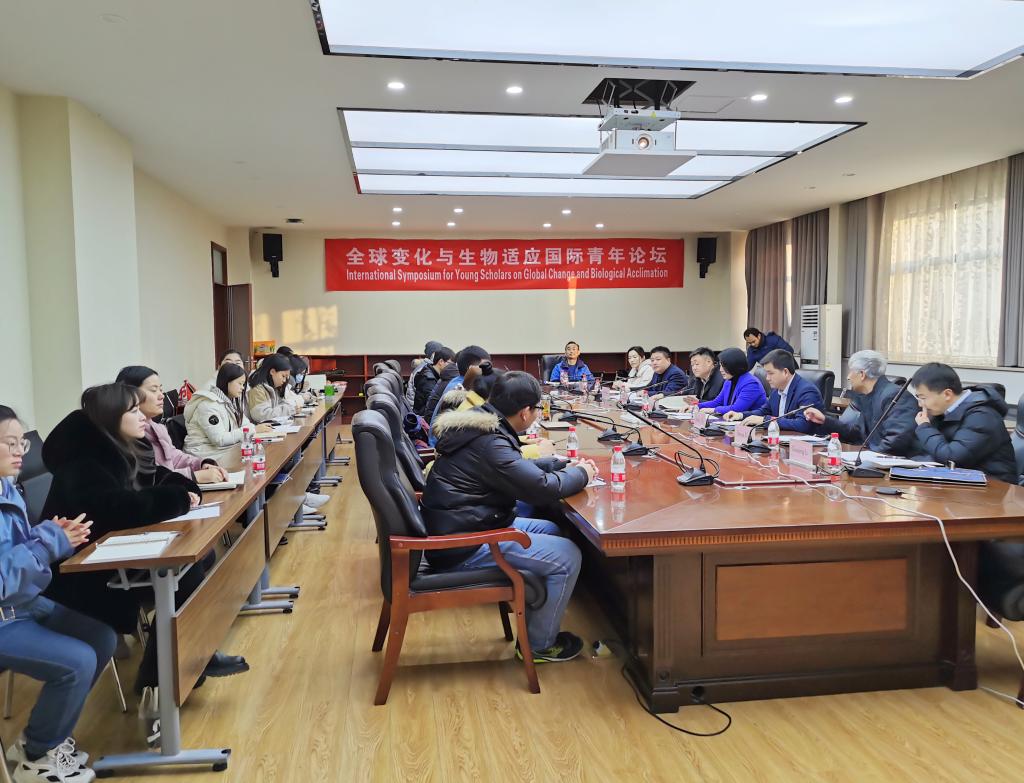

International Symposium for Young Scholars on Global Change and Biological Acclimation was held in Henan University from January 11th to 12th, 2021. The symposium was hosted by HENU and supported by School of Life Sciences and International Joint Research Lab for Global Change Ecology. 4 international experts from United States, Finland and Canada along with more than 200 people from 20 universities and research institutes attended the event. Mao Liqun, Director of International Affairs Office, Hu Binbin, Vice Director of Institute of Science and Technology, Zhang Lixin, Dean of School of Life Sciences, Zhao Haipeng, Vice Dean of School of Life Sciences,Li Zhifang, Assistant Dean and Director of Talent Training and International Affairs Office of School of Life Sciences, Professor Han Shijie, and Professor Li Guoyong attended the opening ceremony. The meeting was presided over by Zhao Haipeng.
Mao Liqun delivered a welcome speech and introduced the development of both HENU and Ecology in our university. She also looked forward to facilitating insightful conversation among conference participants which, without a doubt, will give to new and exiting ideas and approaches for development of Ecology. Hu Binbin and Zhang Lixin gave the speech, respectively.
Focusing on the theme of "Global Change and Biological Acclimation", the symposium discussed the acclimation of plants, animals and microorganisms under current global change. The conference was held offline and online simultaneously,with English as the designated language.
Many scholars gave keynote speeches and put forward new ideas worthy of attention, including Johan Kotze from University of Helsinki, Finland, Nicholas G. Smith from Texas Tech University, USA, Xian Liu from Southern Illinois University, Carbondale, USA, Zilong Ma from Lakehead University, Canada, Ruiting Ju from Fudan University, Xiankai Lu from South China Botany Garden, Chinese Academy of Sciences, Hui Zhang from Hainan University, etc. The symposium consists of four sessions: “Effects of global change on ecosystem”, “Acclimation of trait and physiology to global change”, “Current status and prediction of biological invasion” and “Ecological restoration and sustainable development”.
This symposium offered an ideal platform for young scholars to meet, socialize, present their research excellence and exchange innovative ideas which is conducive to further strengthen the basic research of Ecology in our university.
Contribution: School of Life Sciences

 News /
Content
News /
Content


